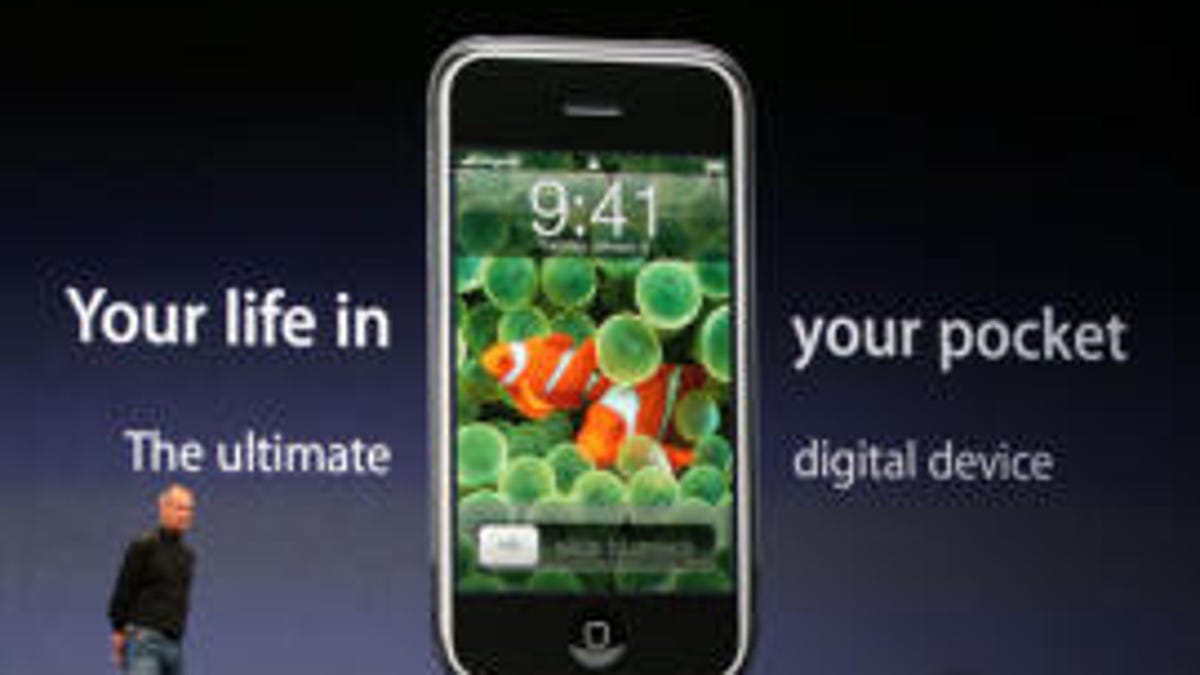Is Apple in over its head with the iPhone?
Don Reisinger thinks Apple may be in over its head with the iPhone. Is he right?

Amazingly, almost every product Apple has released over the past decade has performed extremely well and there's no debating the fact that the iPhone is one of them.
But unlike the computer industry or the PMP business, the cell phone industry judges success by how well a device can perform over the long-term and keep a steady revenue stream flowing for both the carrier and the manufacturer.
And while the computing industry has become quite competitive over the past few years, driving prices down and forcing companies to make more compelling products, there's no debating the fact that the cell phone industry is the most competitive and strangely unprofitable of them all. After all, who would have thought that Motorola -- one of the proven leaders in the industry -- may be getting out of the handset business for good?
Knowing this, has Apple gotten in over its head trying to play the same game it always has with its other devices without realizing that the cell phone industry is an entirely different beast altogether? Sadly, I think it has.
There's more to a cell phone than its good looks and hype
If Apple has learned nothing else, the company now knows that in the cell phone industry, relying on good looks and hype won't get the job done. Let's face it -- Apple's Macs perform well because they're sleek, powerful and run an operating system that most people like. The company's iPods sell extremely well because they're easy to use and have always provided an end-to-end solution with iTunes that has yet to be matched. But what about the iPhone?
Sure, Apple may have already sold 4 million iPhones since June and that's a success story by itself, but in this business, longevity is difficult to maintain and competitors are always ready to release something better.
Unlike any other business Apple is in, cell phones become obsolete within a week. Think about it -- how many times have you gone into your local cell phone shop and seen a cell phone retailing for $149.99, only to find the same product going for $49.99 the next week? Competition in the industry is fierce and the chances of one product leading the way for too long are poor, at best.
More than anything else though, Apple misjudged the loyalty of cell phone owners. By forming a deal with AT&T, Steve Jobs and company obviously believed people would jump ship at the first chance they had just to get their hands on the iPhone. And while some did, Verizon Wireless just reported that it added 2 million subscribers to its service and handily beat AT&T in post-paid subscriber gains and revenue.
Along those lines, why was Apple caught off guard by the immense unlocking community that has done all it can to make sure the iPhone would work on any GSM network? Didn't the company know that unlocking is commonplace in the business? If it did, why did it fail to realize that by locking the iPhone down, an enormous group of individuals would blaze the path that ultimately led to about a 30 percent unlocking rate?
And despite Apple's attempt at stopping unlockers dead in their tracks by changing the way the iPhone loads software from flash memory, permitting only certain kinds of software from loading into the main memory, the hacking community is still strong and ostensibly growing in numbers. To make matters worse for the company, all of these anti-unlocking measures didn't work. According to estimates, iPhone unlocks were about the same during the third and fourth quarter.
Dealing with AT&T
Perhaps most vexing is the sweetheart deal Apple was able to coax AT&T into. Sure, the company may have won out through the revenue sharing, but now that it hasn't been able to stop unlockers and the chances of hitting its goal of 10 million iPhones sold this year would require a faster sales rate than it witnessed during the busy holiday season, what makes anyone think that AT&T or any future exclusive carrier of the iPhone would fall into the same iPhone trap? And considering Verizon Wireless isn't feeling the effects of the iPhone anymore, who can honestly say that Apple's device is as groundbreaking or Earth-shattering as we once thought?
The iPhone was easily the most advanced cell phone released in 2007. But in an environment where competition is fierce and hype dies quickly, Apple looks a bit lost at this point. Is the iPhone still a leader in the business? Sure. But if it can't coax people to switch carriers and the company can't stop 30 percent of its consumers from unlocking it, what can Apple really do to make this the first real groundbreaking device that changes the entire cell phone business forever?
My advice -- get out of the contract with AT&T and unlock the iPhone, allowing it to run on any carrier all over the world. Of course, the chances of that happening in the near-term are just about zero.

